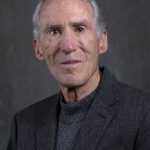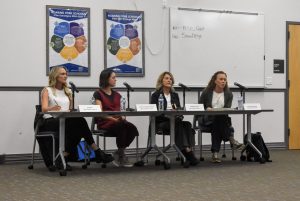Feinsinger column: The dangers of polypharmacy
Doctor's Tip

Courtesy
William Osler, M.D. was a famous American physician who died in 1919, who is often called “the father of modern medicine.” He is responsible for several famous sayings, many of which concern over-prescribing of medications.
For decades, medical education has been all about pills and procedures, with little to no teaching about prevention and about the power of food to prevent, treat and reverse disease. As people on the standard American diet age, most develop chronic diseases which affect quality of life and eventually kill them. Starting in their 50s and 60s they experience a slow decline with more and more pills, more procedures, and more doctor visits.
Eventually, many people end up on multiple medications. Polypharmacy is defined as being on 5 or more long-term medications, which applies to a large percentage of Americans 65. Following are some of the problems associated with polypharmacy:
- Any time a patient is on more than one drug (including over-the-counter drugs) or supplement, adverse interactions can occur;
- Increased cost to patients and to the health care system;
- Increased incidence of drug side effects, including cognitive impairment and confusion– particularly in the elderly, who have decreased ability to metabolize drugs;
- If someone is on multiple pills, they are more apt to avoid or forget to take critical medications;
- Functional decline, including difficulty working or just performing activities of daily living;
- Falls, which can result in serious injury, disability, and death;
- Urinary incontinence.
Following are some factors that can lead to polypharmacy:
- Failure to have a primary care provider, who coordinates and oversees your healthcare;
- Visits to one or more specialists, who may prescribe medications related to their own field of expertise without considering other medications you are taking;
- Inaccuracies in medical records;
- Misdiagnoses, an example being failure to diagnose a blocked artery to a kidney or primary hyperaldosteronism—2 causes of high blood pressures that are correctible without medication;
- Failure of patients to adopt lifestyle measures that would allow them to stop or cut back on pills.
What to do?
- Optimize your lifestyle, which can prevent, treat, and even reverse many chronic diseases;
- Be sure you know the purpose of any medication that is prescribed for you, and vocalize questions or concerns;
- If you are on more than one medication, ask your pharmacist if there could be any drug-drug or drug-supplement interactions;
- Bring all your medications including over-the-counter drugs and supplements to every doctor’s appointment—primary care or specialist;
- Check the medication list in your electronic medical record and make sure it is up to date;
- If you’re on more than 3 or 4 medications, ask your doctor at each visit if they are all still necessary.
Dr. Greg Feinsinger is a retired family physician who started the non-profit Center For Prevention and Treatment of Disease Through Nutrition. For questions or to schedule a free consultation about nutrition or heart attack prevention contact him at gfmd41@gmail.com or 970-379-5718.

Support Local Journalism

Support Local Journalism
Readers around Glenwood Springs and Garfield County make the Post Independent’s work possible. Your financial contribution supports our efforts to deliver quality, locally relevant journalism.
Now more than ever, your support is critical to help us keep our community informed about the evolving coronavirus pandemic and the impact it is having locally. Every contribution, however large or small, will make a difference.
Each donation will be used exclusively for the development and creation of increased news coverage.









